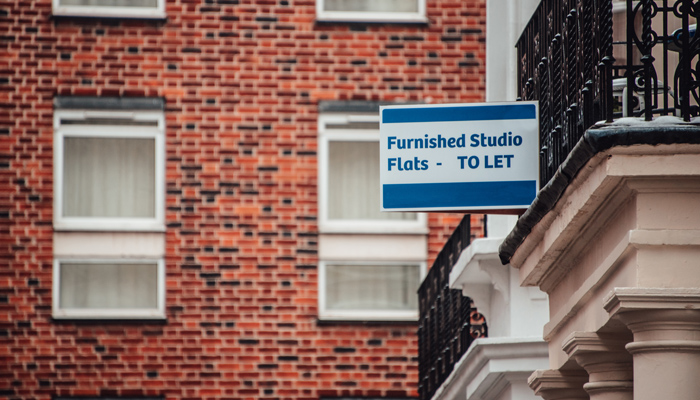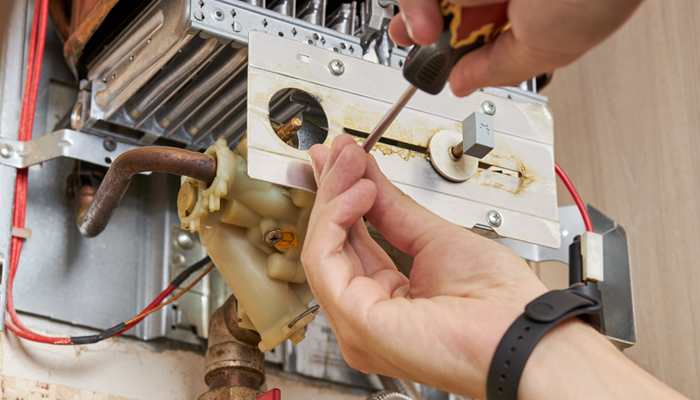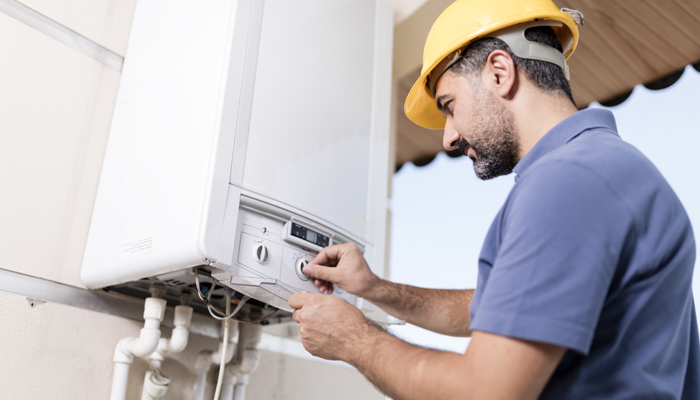How to Apply for Government Energy Grants and Improve Your Energy Efficiency
Landlords need to be ready for new legislative changes coming in 2018, which means thinking of ways to improve the energy efficiency of your properties. This article examines ways to ensure your properties meet the new minimum EPC rating and lists the energy grants that might be applicable to you.

From 1 April 2018, you won't be able to let out any residential or commercial property with an EPC rating below E. This applies to all new lettings and tenancy renewals, according to the Department of Energy and Climate Change (DECC). The same will apply to all existing tenancies beginning 1 April 2020.
Obviously, these changes will have big effects on landlords. You'll need to ensure that your properties have efficient energy measures in place by the effective start date, not only to meet minimum compliance standards but also to attract potential new tenants. Proactively adopting energy saving methods makes your home immediately more affordable and demonstrates that you're working in your tenants' best interests, further boosting the appeal of your property.
Fortunately, improving your energy efficiency to meet the minimum rating doesn't have to be incredibly costly. Here we have some tips and tricks that you can use to save energy in your properties, along with a list of energy grants you might be eligible for:
Insulate Your Home
Insulating your home is one of the simplest, yet effective, ways to cut energy consumption, reduce heating bills, and keep your house warmer in the winter.
You'll want to make sure that your floors, walls, roof, and loft are all well insulated. The bill payer can also save hundreds of pounds each year if you insulate your hot water tank and exposed hot water pipes.
Even cheap and simple fixes, such as draught-proofing your windows and doors, can save between £25–50 per year. You can typically do this at a relatively small expense using self-adhesive foam strips or longer-lasting metal/plastic seals.
Use More Renewable Energy
You can take some of the burden off electric bills by switching to green energy sources that generate power from the sun, wind, and water. Here are some renewable technologies you can consider to save energy and reduce your home’s carbon footprint:
-
Anaerobic digestion
-
Deep-cycle batteries
-
Hydro systems
-
Micro combined heating and power (CHP)
-
Solar panels
-
Wind turbines
Heat Generating
-
Air source heat pumps
-
Biomass systems
-
Ground source heat pumps
-
Solar panel water heating
-
Thermal stores
Consider the Cost of Heating
If your property is anything like the typical UK household, heating and hot water costs are responsible for more than half of its fuel bills. You're probably using a gas boiler, though these can also run on oil, LPG, coal, or wood.
The best ways to ensure that heating costs stay low are to keep the house well-insulated and your boiler in good repair. Since 2005, most gas boilers installed across the UK have been condensing boilers—which are more efficient than older models. If your boiler was installed before 2005, there's a good chance that replacing it might save on electrical bills.
Buy Energy Efficient Appliances
When purchasing appliances, watch for the energy ratings label and consider the size of the appliance in question. Larger appliances use more energy, so even if two fridges have an A+++ rating, the smaller option will end up costing less.
You can also advise your tenants to follow some simple tips and tricks to help them cut down on energy consumption:
-
Fridge/freezer: The fridge is best kept between 3 and 5oc and the freezer between -15 and -18 oc. Neither should be overstocked to allow for proper air circulation.
-
Washer/dryer: Just two loads of laundry per week (washing and drying) will cost approximately £100 per year. To save money, tenants could try washing at a lower temperature or drying clothes on a clothes line on sunny days.
-
Computers/televisions: Suggest that they use power saving modes on electronics whenever possible, and turn them off instead of letting them rest in standby mode. The typical UK household wastes £30 per year powering appliances in standby mode.
-
Kettle: The typical household uses their kettle 1,500 times a year. Something as simple as filling a kettle with only as much water as is needed will save money and significantly cut energy use.
Install a Smart Meter
Smart meters are the next wave of energy meters and they're already being installed in households and businesses across the UK. By 2020, the government aims to have over 53 million smart meters installed across England, Wales, and Scotland.
Smart meters replace your current gas and electricity meters. They supply a continuous stream of data on your energy usage directly to the energy supplier, resulting in more accurate billing and real time reports on energy expenses. There’s also an in-home display which shows exactly how much energy is being used.
Energy Grants Your Property Might Be Eligible For
The easiest way to see which energy grants you and your tenants are eligible for is to use the HMRC Energy Grants Calculator. This calculator will tell you which grants are available based on the energy saving improvements you've implemented in your property.
Here are some of the benefits that might apply to you:
Green Deal Funding
The Green Deal was a scheme meant to help homeowners finance home energy improvements such as double-glazing and solid wall insulation. The government has stopped funding the Green Deal Finance Company, but you may still be able to find providers who finance the scheme themselves.
ECO
Under the Energy Company Obligation (ECO) scheme, large energy companies are legally obligated to help low income families and households in the underprivileged areas save money on heating and insulation. Websites like boilergrants.co.uk make it easy to see if you qualify for ECO benefits, such as a free boiler.
Note: ECO is only available in England, Wales, and Scotland. Residents in Northern Ireland should apply for the Warm Homes Grants scheme instead.
Domestic Renewable Heat Incentive (Domestic RHI)
To promote the use of renewable heat, the government introduced the Domestic Renewable Heat Incentive (Domestic RHI). Typically, you can only apply for an RHI if your property has an Energy Performance Certificate, and you must have one of the renewable heating systems listed above installed in your property.
Feed-in Tariffs (FITs)
Your home might qualify for the Feed-In Tariffs (FITs) government scheme if it uses any of the renewable electricity generating sources above. Under this scheme, there are multiple ways that both landlords and tenants benefit:
-
Generation Tariff – Your energy supplier will pay you a set amount for each kWh of electricity your house generates. This may vary depending on the size of your system, the technology you've installed, how old the technology is, and how energy efficient your home is.
-
Export Tariff – Your energy supplier will pay you a further 4.85p per kW that your house exports back to the electricity grid. If it’s exporting more than 30 kW, you'll need to install an export meter.
-
Energy Savings – Naturally, tenants wouldn’t need to buy as much electricity if your property is generating a portion of it itself. That means more savings on electricity bills.
To figure out how much money the FIT scheme could save you and your tenants, use the HMRC's energy calculators.
Final Thoughts
Landlords who implement energy efficient measures are making an investment. On the one hand, you're ensuring that you meet compliance standards well before the new legislative changes affecting rental properties. On the other hand, you're able to economise your property, making everything more affordable. The more affordable the home, the more appeal your property holds for prospective tenants.
To find out more about how we help landlords save money, please contact us or visit our landlord insurance page.
Date: June 06, 2016
Category: Commercial Property












